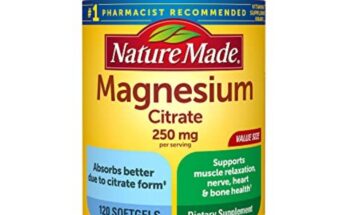When you think of your immune system, the last thing that probably comes to mind is power—but you can harness the real power of your immune system by making simple lifestyle changes that will help it keep you healthy year-round.
Making small tweaks to your daily routine that focus on lowering stress and boosting your body’s natural defences will have a positive impact on your long-term health and wellness. These are some of the best ways to boost your immune system so you’ll stay healthy all year long and beyond!
Don’t Get Sick When You Shouldn’t
There’s nothing worse than getting sick when you have things to do. A strong immune system is your best defense against getting sick, and there are simple steps you can take to boost your immunity. Here are seven ways to keep your immune system strong:
- Get enough sleep.
- Eat healthy foods.
- Exercise regularly.
- Wash your hands often.
- Avoid touching your face.
- Stay hydrated.
- Reduce stress levels
Getting enough sleep is perhaps one of the most effective ways to strengthen your immune system. As you sleep, your body releases hormones that promote cell growth and repair. And when you’re well-rested, your mood tends to be more positive, which helps prevent stress. Additionally, sleeping well gives you the energy that can help ward off illness as well as sharpen your focus so you can work more efficiently during waking hours.
Eating healthy foods also helps you stay well, because what you put into your body greatly affects how well it functions. For example, healthy food can help keep your immune system strong and ward off infections that can make you sick. Focus on fruits and vegetables—they’re full of vitamins and antioxidants that are essential for helping your body fight infections. Choose lean meats such as chicken or fish, because they have less fat than red meat and contain some protein, which gives you energy while helping to build muscle.
Nuts, Seeds, and Beans
These foods are all packed with nutrients that help support a healthy immune system. They’re also great sources of protein, which is essential for immune function. Try adding a handful of nuts or seeds to your morning oatmeal or lunchtime salad. You can also add beans to soups and stews for an extra boost of immunity-boosting power. And don’t forget about dark leafy greens – they’re packed with vitamins and minerals that promote good health!
Remember always to drink plenty of water when eating these superfoods to aid in digestion. Another food to consider? Probiotics! Fermented foods like kimchi, sauerkraut, yogurt, kefir and kombucha are all loaded with probiotics that help keep the gut healthy. Eating these things will not only provide you with a wide range of nutrients but also offer some protection against stomach bugs like E coli.
Vitamin C intake
Vitamin C is one of the most well-known and well-studied nutrients. It’s intricately involved in all sorts of processes in the body, such as forming collagen, absorbing iron, and the proper functioning of the immune system. While you can get vitamin C from foods like oranges and strawberries, sometimes it’s difficult to get enough from diet alone.
That’s where supplements come in. Vitamin C supplements can help ensure that you’re getting enough of this important nutrient. And while supplementing with vitamin C doesn’t replace the need for fruits and vegetables, taking them in combination with eating whole foods can be helpful. Another option for boosting your intake of vitamin C is through drinking lemon water.
Lemons are packed with natural sugar called citric acid which has been shown to increase levels of antioxidants throughout the body. Adding lemon slices or squeezing fresh lemon juice into your daily glass or two of water not only helps provide your body with extra health benefits but also makes water taste better!
B Vitamins intake
B vitamins are essential for a healthy immune system. They help the body produce red blood cells, which carry oxygen and nutrients to the cells, and they also help the body produce antibodies, which fight infection. A diet rich in B vitamins can help keep your immune system strong. You can get B vitamins from foods like leafy green vegetables, legumes, nuts, and seeds. You can also take a supplement.
The most common types of B vitamin supplements are multivitamins with no more than 100% of the recommended daily value (RDA) for each nutrient, or individual forms such as thiamine (B1), riboflavin (B2), niacinamide (B3), pantothenic acid (B5), pyridoxine hydrochloride (B6), cyanocobalamin or hydroxocobalamin (B12).
Most people should avoid high doses of single forms such as thiamine mononitrate, riboflavin mononitrate, niacinamide, or pyridoxine hydrochloride because it may lead to an imbalance in other important vitamins and minerals.
Garlic, Ginger, and Onions
These three pungent ingredients are not only great for adding flavor to your food, but they also have powerful immune-boosting properties. Garlic is a natural antibiotic that can help fight off infection, while ginger can help soothe an upset stomach and ease nausea. Onions are packed with nutrients like Vitamin C, which is essential for a healthy immune system.
So, the next time you’re feeling under the weather, try cooking up a dish with these three ingredients. You’ll be surprised at how quickly you feel better! In addition to boosting your immune system, garlic is also known for its ability to protect against heart disease and cancer. Ginger has been shown in studies to reduce inflammation in the body. Meanwhile, onions are rich in antioxidants that may help slow down ageing and lower cholesterol levels.
Exercise & Sleep
If you want to be healthy, exercise is an important element. It lowers your risk for heart disease, diabetes, and stroke, and helps keep your blood pressure in check. And when you’re stressed, exercise also helps by releasing endorphins, which are hormones that block the body’s stress response. Make sure you exercise enough! Additionally, you should sleep seven to eight hours a night. Sleep is when your body heals and recharges, so it’s crucial to get enough rest. The lack of sleep can even lead to serious health problems like obesity, high blood pressure, and depression.






